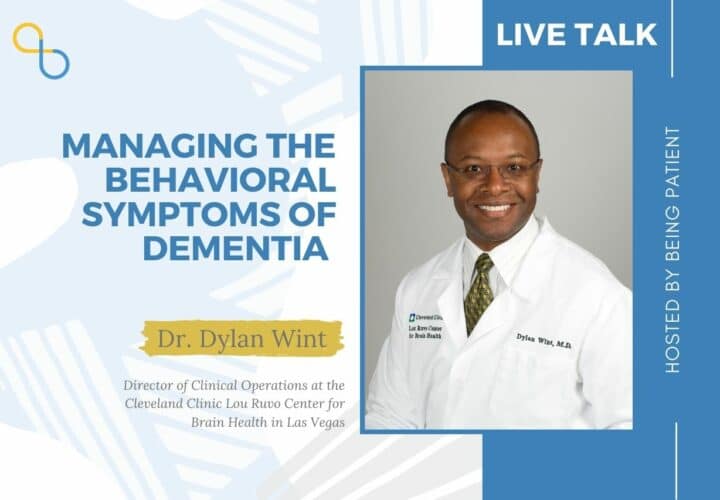Early-onset Alzheimer’s may come with more severe behavioral symptoms than late-onset Alzheimer’s, a new study finds.
Clinicians have suspected that people with early-onset Alzheimer’s, which becomes symptomatic in people aged 65 or younger, tend to decline more rapidly than those with the more common late-onset Alzheimer’s. Studies have shown that the brains of those with early-onset Alzheimer’s tend to have greater degeneration, compared to late-onset Alzheimer’s patients. But, whether early-onset Alzheimer’s comes with greater severity of behavioral symptoms (also known as neuropsychiatric symptoms) hasn’t been clearly shown in research.
Now, a recent study, published in the European Journal of Neurology, neuropsychiatric symptoms were more severe in patients with early-onset Alzheimer’s than those with late-onset Alzheimer’s.
The study’s lead author Dr. Neus Falgàs, a postdoctoral researcher at the University of California San Francisco, said a deeper understanding of how symptoms differ among various types of Alzheimer’s could reveal distinct changes in patients’ brains.
“The differences in clinical symptoms may reflect differences in how the disease — the tau or amyloid proteins — are spreading within the brain,” Falgàs told Being Patient. “It’s a way to know better how the disease progresses over time within” the different forms of Alzheimer’s.
Falgàs hopes that identifying these differences could ultimately guide researchers toward developing more tailored treatments. Currently, medications like antipsychotics that are prescribed off-label for Alzheimer’s patients carry the risk of adverse side effects, such as falls and sedation. But targeting pathways specific to Alzheimer’s and the various types of the disease, she said, may lead to safer therapies.
In the study, Falgàs and her colleagues recruited 219 participants from UCSF’s Memory and Aging Center. The patients underwent a series of tests evaluating their cognitive and functional abilities. Their Alzheimer’s diagnoses were confirmed by amyloid PET scans and/or lumbar punctures, or post-mortem brain evaluations. Among these participants, 135 patients had early-onset Alzheimer’s, with symptoms appearing at the age of 65 or younger. On the other hand, 84 people were diagnosed with late-onset Alzheimer’s.
Participants’ informants completed a questionnaire about the neuropsychiatric symptoms of the person under their care. A subset of 114 patients underwent follow-up evaluations of these symptoms for up to four years.
Despite receiving more neuropsychiatric treatments, the researchers found that patients with early-onset Alzheimer’s experienced greater severity of neuropsychiatric symptoms, both at baseline and over time, compared to those with late-onset Alzheimer’s. These differences were significant after the team controlled for patients’ cognitive and functional abilities.
Across the course of their disease, participants with early-onset Alzheimer’s had a higher likelihood of experiencing anxiety, wandering and sleep problems.
According to Falgàs, past research hasn’t clearly affirmed the theory that neuropsychiatric symptoms are more severe in patients with early-onset Alzheimer’s compared to late-onset. But, her team’s recent findings support it, suggesting there could be distinct patterns of degeneration in certain brain regions — patterns that underlie the different severities of neuropsychiatric symptoms between the two types of Alzheimer’s.
Meanwhile, the study’s main limitation, Falgàs noted, is the subjective nature of the questionnaire regarding patients’ neuropsychiatric symptoms.
When it comes to sleep disturbances, there are diagnostic tools that can detect patients’ sleep problems objectively. But for other neuropsychiatric symptoms, subjectivity could cloud the results. Accordingly, Falgàs and colleagues are examining the link between sleep disturbances, structural changes in the brain, neuropsychiatric symptoms and different forms of Alzheimer’s in an ongoing study. She hopes that learnings from the team’s research could help clinicians detect the disease before memory problems appear.



